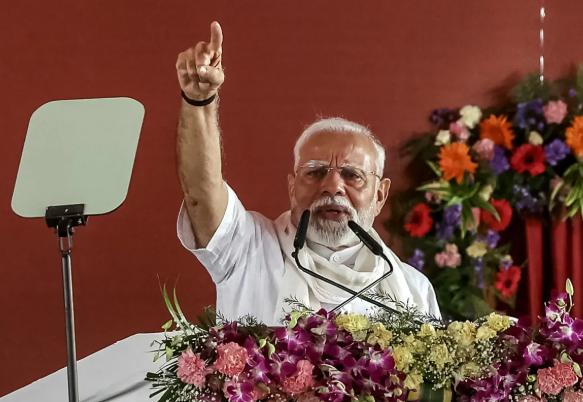Facing the tariff threat from US President Donald Trump, Indian Prime Minister Narendra Modi took a tough stance, urging its citizens to purchase domestic goods, while the Indian government stated that it would continue to buy Russian oil.
People familiar with the matter told Bloomberg that the Modi government has not instructed Indian refiners to stop purchasing Russian oil, nor has it made a decision on whether to do so. Due to the sensitivity of the situation, these insiders requested anonymity. Several people familiar with the matter said that both state-owned and private refiners are allowed to purchase from priority sources, and the purchase of crude oil remains a commercial decision.
Last weekend, Modi emphasized the importance of protecting India’s economic interests amid the uncertain global situation. Just a few days ago, the Trump administration imposed a 25% tariff on Indian products exported to the United States. The White House also threatened that if India continues to purchase Russian oil, it will take more actions.

“The world economy is experiencing many concerns – an atmosphere of instability pervaded,” Modi said at a rally in Uttar Pradesh on Saturday. Now, no matter what we buy, there should be only one standard: we want to buy things made with the blood and sweat of Indians.
Trump is trying to pressure Russian President Vladimir Putin to end the war in Ukraine, and India has become one of his top targets. Last week, the US President strongly criticized India for joining the BRICS group and maintaining close ties with Russia, saying, “They can join forces to destroy their already declining economies.”
This condemnation marks an astonishing shift in the tone of the United States. For many years, the United States has been ignoring the close historical relationship between India and Russia, attempting to use India as a counterbalance to China’s power in Asia. Nowadays, it seems that Trump intends to reverse this strategy in order to gain leverage against Putin, who has been resisting the US President’s efforts to end the war in Ukraine.
Despite the escalating tensions, New Delhi still expressed its willingness to continue trade negotiations with Washington. However, analysts predict that as the world’s fastest-growing major economy, India will not make many concessions. Trinh Nguyen, a senior economist at Natibole, wrote that in the recently signed India-UK trade agreement, Modi showed little interest in opening up sensitive industries such as agriculture and dairy products, both of which are the top priorities of the White House. She wrote: “The agreement with the UK indicates that India’s policy risk appetite has risen, but it will proceed at its own pace.”
Stephen Miller, deputy chief of staff to Trump, accused India on Sunday of imposing “huge” tariffs on US goods and “deceiving” the US immigration system. In addition, the amount of Russian oil purchased by India is about the same as that of China.
Miller said, “President Trump hopes to establish good relations with India and the Indian Prime Minister, and he has always maintained good relations.” But we need to take the funding issue of this war seriously.
Miller added, “Therefore, President Trump, we can resolve the ongoing war in Ukraine through diplomatic, financial and other means to achieve peace.”
Trump told reporters last week that he “heard” that India would no longer purchase oil from Russia and called it “a good move”. Bloomberg reported last week that refineries have been told to make plans to purchase non-Russian crude oil, but one of the people familiar with the matter said the instruction is equivalent to a scenario planning in response to disruptions in Russian crude oil supplies.
The New York Times on Saturday quoted two unnamed senior Indian officials as saying that despite Trump’s threat to impose sanctions on India, India will continue to purchase Russian crude oil. A spokesperson for India’s Ministry of Petroleum did not respond to an email from Bloomberg seeking comment outside of working hours.


